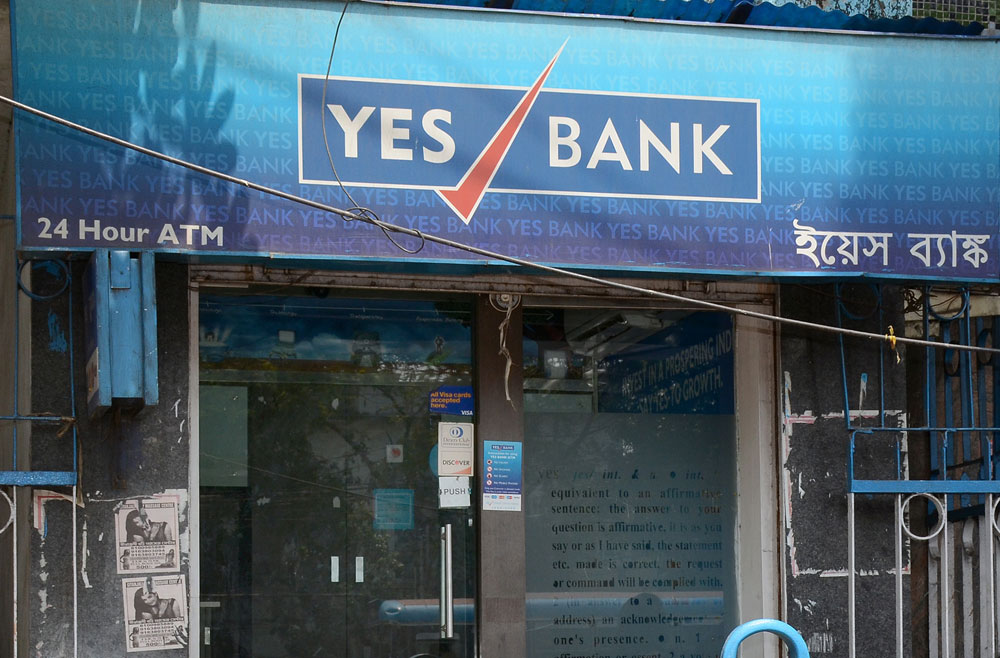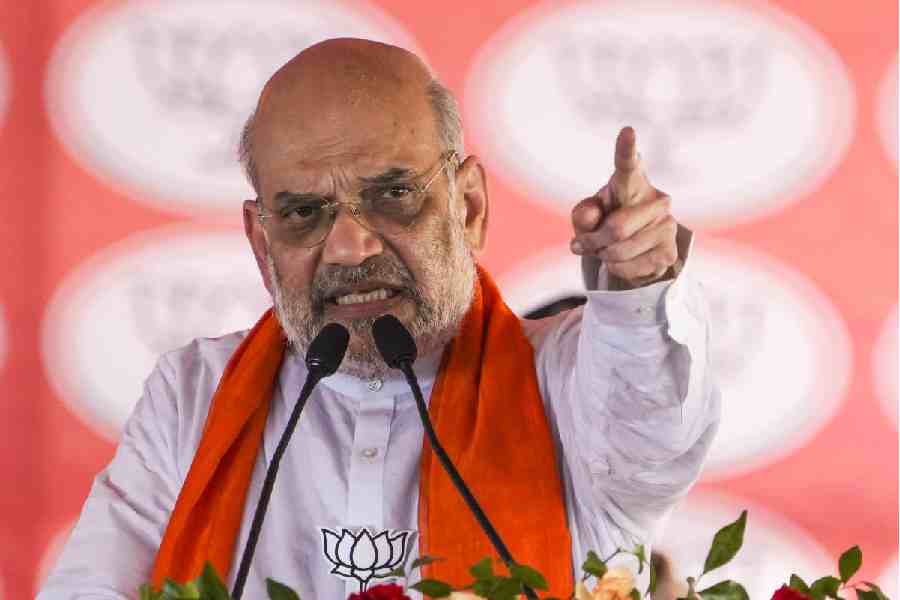The Reserve Bank of India on Thursday superseded the board of directors of Yes Bank for a period of 30 days after determining that there had been a serious deterioration in its financial position even as the government slapped a moratorium capping withdrawals from all current, savings and deposit accounts held at the bank’s branches at Rs 50,000 till April 3.
The sudden decision to crack down on Yes Bank, which has been struggling to raise capital from a bunch of strategic overseas investors, came after a day of intense rumour mongering about a rescue plan being mounted by the State Bank of India and Life Insurance Corporation under which the two giant state-owned institutions would pick up 24.5 per cent each through a preferential issue of shares.
The RBI named Prashant Kumar, former deputy managing director and chief financial officer of State Bank of India, as the administrator of the bank.
The banking regulator said the decision had been taken in consultation with the government.
“This has been done to quickly restore depositors’ confidence in the bank, including putting in place a scheme for reconstruction or amalgamation,” the RBI note said.
While there was no confirmation from LIC on the rescue plan, later in the night SBI clarified in a statement to the bourses that its board has given an in-principle approval to explore investment opportunity in Yes Bank.
It wasn’t clear why Yes Bank had been superseded for only 30 days and stirred speculation that the bailout plan might not necessarily emanate from the state-owned entities.
The RBI assured the depositors of the bank that their interest would be fully protected and that there was no need to panic.
“The Reserve Bank will explore and draw up a scheme in the next few days for the bank’s reconstruction or amalgamation and with the approval of the central government, put the same in place well before the period of moratorium of 30 days ends so that the depositors are not put to hardship for a long period of time,” the regulator said.
Cap on withdrawals
In its gazette notification, the government stayed the “commencement or continuance of all actions and proceedings against that banking company during the period of the moratorium”.
The notification said if a depositor had multiple accounts with the bank, his withdrawals from all the accounts would be capped at Rs 50,000.
If a depositor had any dues payable to the bank, either as a borrower or surety, the bank would make any payments to him only after “adjusting the relevant borrowal accounts”.
The government has cut some slack to the bank’s customers who may need to meet certain unforeseen expenses. It said the Rs 50,000 cap on withdrawals would not apply in the case of medical treatment for the depositor or anyone dependent on him.
Payments needed to meet expenses related to marriage, children’s higher education in India or abroad would also be exempt from the cap.
However, the gazette notification added that any payment in excess of the limit shall be reckoned from the payment due to the depositor “under any scheme of reconstruction or amalgamation as may be sanctioned by any competent authority in relation to the said banking company”.
In any case, the total payment to meet the cost of emergencies would not exceed Rs 5 lakh or the actual balance lying to the credit of the account of such depositor, whichever is less.
Financial decline
In another note issued late on Thursday night, the RBI explained why it had taken precipitate action against Yes Bank. “The financial position of Yes Bank has undergone a steady decline largely due to the inability of the bank to raise capital to address potential loan losses and resultant downgrades, triggering invocation of bond covenants by investors, and withdrawal of deposits. The bank has also experienced serious governance issues in recent years,” the note said,
It said the bank management had been in talks with various investors and had hoped to sew up a deal.
Yes Bank had been in talks with Cantor Fitzgerald, led by the Deutsche Bank global co-CEO Anshu Jain and investment banks IDFC Securities and Ambit Capital to raise funds. It received non-binding expressions of interest from investors, including JC Flowers, Tilden Capital Park, OHA UK and Silver Point Capital.
“These investors did hold discussions with senior officials of the RBI but for various reasons did not infuse any capital. As a bank and market led revival is a preferred option over a regulatory restructuring, the Reserve Bank made all efforts to facilitate such a process and gave adequate opportunity to the bank’s management to draw up a credible revival plan, which did not materialise,” the RBI note said.
Bailout plan
The buzz of a bailout plan for Yes Bank started swirling early in the morning but there was no official announcement to confirm the development.
The Yes Bank stock soared almost 30 per cent to a high of 37.90 on the Bombay Stock Exchange before closing at Rs 36.85, a gain of Rs 36.85, or 25.7 per cent.
The stock exchange sought comment from SBI and Yes Bank authorities about the rumours in the market that had sent the stock soaring during the day.
In a terse statement, SBI said it would “abide by the timelines under Regulation 30 of SEBI (LODR) Regulations 2015 in disclosing the developments, if any in the matter to stock exchanges”.
The Yes Bank management, which has been in negotiations with several overseas players over the past few months to raise $2 billion in fresh capital, was caught unawares by the latest development.
Responding to queries from the stock exchanges, Yes Bank said: “We would like to clarify that as on date, the bank has not received any such communication from the Reserve Bank of India or any other government or regulatory authorities or from the SBI and we are unaware of any such decision. Therefore, we are not in a position to comment on the news item.”
The development also spawned a couple of reports from brokerages that suggested that Yes Bank’s net worth had dropped to zero.
“Yes Bank has a net worth of around Rs 25,000 crore. Its below investment grade book (BB and below) is around Rs 30,000 crore and the BBB book is at around Rs 50,000 crore. If we assume substantial portion of BB and below is wiped out and say 10-15 per cent of BBB book is to be written off, it implies the current net worth of the bank is zero (after factoring in 25 per cent tax benefits). Ideally, SBI and other PSU banks need to buy the bank at Re 1,” Macquaries Capital Services analyst Suresh Ganapathy said in a report.
J.P. Morgan Asia Pacific Equity Research analyst Saurabh Kumar said in a note: “The new capital will likely come in at a steep discount to the current share price as the ‘bailout’ investors will want a large cut for equity holders.”
“We believe that the bailout investors will want the bank to be acquired at near zero value to account for risks associated with the stress book and likely loss of deposits…We remain underweight and cut our target price to Rs 1 as we believe is largely impaired.”
It is impossible to say how bad the situation is at Yes Bank which has delayed the announcement of its third quarter results.










